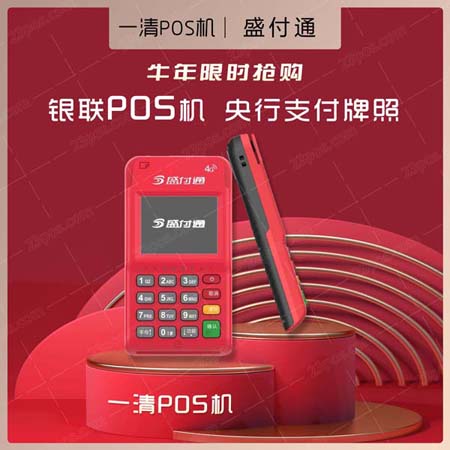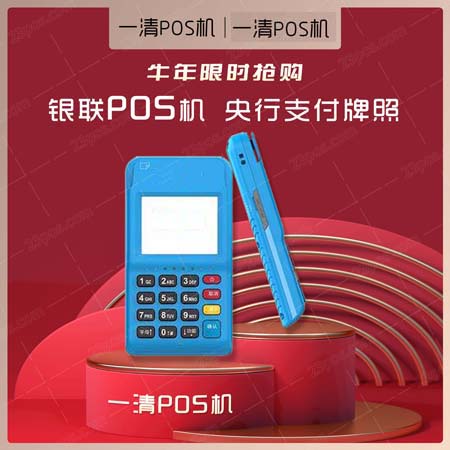The Current Status of POS Machine Usage

Introduction
In the modern world, POS (Point of Sale) machines have become an integral part of retail and hospitality industries. These devices have revolutionized the way transactions are conducted, offering convenience, security, and efficiency. Whether you are a business owner, a transactional specialist, or simply someone who is interested in the evolution of payment systems, understanding the current status of POS machine usage is crucial. This essay will delve into the various aspects of POS machine usage, exploring their benefits, challenges, technological advancements, and future prospects.
Benefits of POS Machine Usage
1. Enhanced Customer Experience:
Convenience: POS machines allow customers to pay quickly and easily at any point of sale. This is particularly beneficial during peak shopping hours when lines may be long. The ability to pay with a smartphone or a card without waiting in line can significantly enhance the overall shopping experience for customers.
Payment Options: Modern-day POS machines offer a variety of payment options, including credit/debit cards, mobile wallets, and even online payments through integrated e-commerce platforms. This diversity ensures that customers can choose the most convenient method for them, increasing their satisfaction and loyalty.
Efficient Transactions: POS machines streamline the transaction process by reducing the need for paper receipts, handling cash, or going to a separate payment terminal. This results in faster transactions, less errors, and a more efficient overall process.
2. Improved Business Operations:
Streamlined Processes: POS systems automate many tasks involved in the sales process, such as data entry, inventory management, and reporting. This allows businesses to focus on their core competencies like marketing, customer service, and product development while leaving the administrative tasks to the POS system.
Data Management: POS machines provide businesses with valuable data on sales performance, customer demographics, and transaction trends. This information can be used to make informed decisions, optimize pricing strategies, and improve inventory management.
Increased Security: POS machines can incorporate security features like encryption, tokenization, and biometric authentication to protect sensitive customer and business data. Additionally, the use of EMV cards and contactless payments reduces the risk of fraud.
3. Increased Sales and Revenue:
Increased Foot Traffic: By providing a convenient and efficient payment option, POS machines can attract more customers to your business. happier customers are more likely to return and make repeat purchases, leading to increased sales and revenue.
Cross-Selling Opportunities: POS systems often come with features like customer profiles and purchase history that allow retailers to cross-sell products or offer personalized promotions. This can lead to additional revenue streams.
Optimized Pricing Strategies: Understanding sales patterns and customer behavior through POS data can help businesses set optimal pricing strategies. This can ensure that prices are competitive yet profitable.
4. Cost Savings:
Reduced Labor Costs: By automating many transactional tasks, POS machines reduce the need for manual labor, which can lead to significant labor cost savings.
Lower Operational Costs: POS systems are designed to be highly efficient, reducing the need for overhead costs such as utilities, rent, and maintenance. Additionally, many POS software solutions include features like inventory management and demand forecasting, which can further minimize operational costs.
Prevent Fraud: The security features built into POS machines can help prevent fraudulent transactions, saving businesses from potential financial losses.
Challenges of POS Machine Usage
1. High Initial Costs:
The initial investment required to purchase and implement a POS system can be substantial. businesses need to consider not only the cost of the hardware but also the cost of software, integration, and training. While there are cost-effective POS solutions available, the initial outlay can still be a barrier for some businesses.
Additionally, businesses need to factor in ongoing maintenance and upgrades, which can add to the overall cost. However, it is important to weigh these costs against the long-term benefits of a POS system, such as increased efficiency, improved sales, and reduced labor costs.
2. Resistance to Change:
Adopting a new POS system can be a significant change for some businesses. Employees may be accustomed to the old system and may resist the transition, which can delay the implementation process and limit the benefits of the new technology.
To overcome this resistance, businesses should plan a comprehensive training program for all employees and gradually phase out the old system to minimize disruptions. Additionally, showcasing the benefits of the new POS system can help build support and encourage employees to embrace the change.
3. Data Security Concerns:
With great power comes great responsibility, and this holds true for POS systems as well. Businesses must ensure that they select a reputable and secure POS provider that offers robust data protection measures, such as encryption, tokenization, and regular security audits.
In addition to data security, businesses also need to be aware of compliance requirements related to data protection and payment processing. Failure to comply with these regulations can result in fines, legal issues, and damage to a company’s reputation.
To mitigate these concerns, businesses should conduct thorough research and due diligence before selecting a POS provider. They should also invest in regular security assessments and implement strong security protocols to protect sensitive data.
4. Technological Issues:
POS machines can encounter technical issues due to software glitches, hardware malfunctions, or connectivity problems. These issues can disrupt sales and cause frustration for both customers and employees. However, modern POS solutions are designed to handle common technical issues, and many businesses have dedicated IT support teams to resolve these problems quickly.
To minimize the impact of technological issues, businesses should invest in reliable POS hardware and software solutions that are known for their stability and performance. Additionally, businesses should establish a clear process for troubleshooting and issue resolution to ensure that any technical difficulties are resolved quickly and efficiently.
Technological Advancements in POS Systems
1. Mobile POS Solutions:
With the rise of mobile marketing and the proliferation of smartphones, mobile POS solutions have become increasingly popular. These solutions enable businesses to process payments directly from a customer’s mobile device, providing a convenient and flexible payment option.
Mobile POS solutions also offer the ability to manage orders, track inventory, and generate sales reports from anywhere. This can save time and increase efficiency, particularly for businesses that operate in multiple locations or have a large sales team.

Some mobile POS solutions also integrate with other tools and applications, such as customer relationship management (CRM) systems and e-commerce platforms, to offer a comprehensive view of a business’s operations.
2. Artificial Intelligence and Machine Learning:
AI and machine learning are revolutionizing the POS industry by enabling businesses to gain deeper insights into customer behavior and sales trends. Through the use of predictive analytics and machine learning algorithms, POS systems can forecast demand, optimize pricing strategies, and personalize marketing efforts.
AI-powered POS
The Current Status of POS Machine Usage,个人pos机用那个牌子好?
在选择个人pos机时,消费者往往会面临一个重要的问题,那就是选择哪个品牌的pos机会更好,拉卡拉个人pos机申请资料? ,为了帮助消费者做出更明智的选择,我们可以先了解一下国内前十大
pos机品牌,然后再对比各个品牌的特点和性能,最终给出推荐。
国内前十大pos机品牌包括银联商务、拉卡拉、盛付通、银联、现代金控、乐刷、合利宝、嘉联、海科融通支付和钱宝,这些品牌在pos机领域都有一定的知名度和市场份额,消
费者可以根据自己的需求和预算选择合适的品牌。
个人办理哪种pos机好?
1.银联商务pos机,适合企业办理,需要营业执照和对公账户,个人无营业执照无法办理。
2.拉卡拉pos机,名气大,很多人把拉卡拉pos机等同于第三方支付pos机,个人办理特别简单。拉卡拉pos机办理流程:拉 卡拉pos机官网申请:http://www.soupos.cn#拉卡拉个人pos机申请资料?
3.盛付通pos机,口碑很好,刷ka卡有积芬,是个人POS机办理的首选产品。盛付通pos机办理入口:盛付通pos机官网申请: http://www.soupos.cn#拉卡拉个人pos机申请资料?
4.通联pos机,类似与银联商务pos机,和银行合作较多,适合企业办理,个人无营业执照无法办理。
solutions can also detect unusual activities and potential fraud by analyzing transaction data in real-time. This can help businesses quickly identify and address any issues, thereby protecting their revenue and maintaining customer trust.Furthermore, AI and machine learning can enhance the customer experience by providing personalized recommendations and targeted promotions based on individual preferences and purchasing history.
3. Internet of Things (IoT) Integration:
IoT has the potential to transform the POS experience by connecting various devices and systems within a business. This can enable real-time inventory management, automated reordering, and seamless order fulfillment processes.
For example, IoT-enabled POS machines can connect to a business’s inventory management system, allowing for real-time tracking of stock levels and enabling automatic reordering when items become low or out of stock.
Additionally, IoT can enhance the customer experience by providing more personalized and convenient payment options. For instance, customers can use their personal devices to pay for goods and receive instant confirmation and receipts.
4. Enhanced Security Features:
As cyber threats continue to evolve, businesses need to invest in advanced security features to protect their POS systems and customer data. This includes the use of encryption, tokenization, and biometric authentication to ensure that sensitive information is protected from unauthorized access.
Additionally, businesses should implement regular security audits and assessments to identify and address any potential vulnerabilities. By staying ahead of the curve with cutting-edge security measures, businesses can protect themselves from data breaches and maintain customer trust.
Future Prospects of POS Machine Usage
1. Expansion into New Markets:
The adoption of POS systems is expected to continue growing as businesses expand into new markets and regions. This trend is driven by the increasing globalization of commerce and the need for businesses to reach customers in diverse locations.
To meet the demands of a global market, businesses will need to ensure that their POS systems are compatible with various payment methods and regulations in different countries. This requires businesses to invest in solutions that are adaptable and scalable, ensuring that they can easily adapt to new markets while still providing a seamless and efficient customer experience.
Additionally, businesses should focus on understanding local consumer behaviors and preferences to tailor their marketing and sales strategies to different markets effectively.
2. Integration with Other technologies:
The future of POS systems will likely see further integration with other emerging technologies, such as blockchain, Internet of Things (IoT), and artificial intelligence (AI). These technologies have the potential to bring new levels of transparency, efficiency, and security to the retail industry.
For example, blockchain technology can be used to create tamper-proof records of transactions, enhancing trust and accountability. IoT devices can enable real-time inventory management, optimizing supply chain processes and reducing losses. AI, on the other hand, can provide predictive insights into customer behavior and sales trends, enabling businesses to make more informed decisions.
However, it is important to approach this integration with caution, ensuring that new technologies are properly tested and validated before being adopted across the organization.
3. Focus on Sustainability and Corporate Social Responsibility (CSR):
As consumers become more environmentally conscious, businesses are increasingly being called upon to adopt more sustainable practices. This includes reducing waste, minimizing carbon footprints, and using eco-friendly materials.
POS systems itself can play a role in promoting sustainability by enabling businesses to monitor and manage their environmental impact through data analytics and reporting tools. For example, tracking energy usage and identifying areas for improvement can help businesses reduce their environmental footprint and achieve their sustainability goals.
Additionally, businesses can leverage their POS systems to support CSR initiatives by tracking and reporting on corporate social responsibility metrics such as employee training programs, community involvement, and product sourcing practices. By doing so, businesses can demonstrate their commitment to making a positive impact on society.
4. Enhanced Customer Experience:
The future of POS systems will likely focus on enhancing the overall customer experience through personalized and convenient options. This includes providing customers with more intuitive and user-friendly interfaces, offering personalized recommendations, and enabling cross-selling and up-selling opportunities.
For instance, AI-powered chatbots can provide real-time assistance and support to customers, answering questions, making suggestions, and processing orders. Additionally, personalized marketing efforts through personalized emails and notifications can help build stronger relationships with customers.
Furthermore, businesses can leverage data analytics and customer insights to understand their target audience better and tailor their products, services, and marketing strategies accordingly. This can lead to a more personalized and engaging customer experience, driving repeat purchases and increasing revenue.
Conclusion
In conclusion, POS machines have become an essential part of modern retail and hospitality operations, offering numerous benefits such as improved efficiency, security, and sales growth. Despite the challenges associated with high initial costs, resistance to change, data security concerns, and technological issues, the adoption of POS systems is expected to continue growing as businesses expand into new markets and focus on sustainability and corporate social responsibility.
Technological advancements such as mobile POS solutions, artificial intelligence, Internet of Things (IoT) integration, and enhanced security features are revolutionizing the POS landscape and providing businesses with new opportunities to improve their operations and expand their capabilities. As technology continues to evolve and consumers become more tech-savvy, the future of POS machine usage holds even greater promise for businesses looking to thrive in an increasingly competitive marketplace.
For businesses considering the adoption of POS technology, it is important to conduct thorough research and due diligence to ensure that they select a reliable and secure solution that meets their specific needs and aligns with their overall business goals. Additionally, businesses should invest in training and support to ensure that employees are comfortable with the new technology and can maximize its benefits. By embracing innovative technologies and prioritizing customer experience, businesses can stay ahead of the curve and achieve long-term success in an ever-evolving market.




















